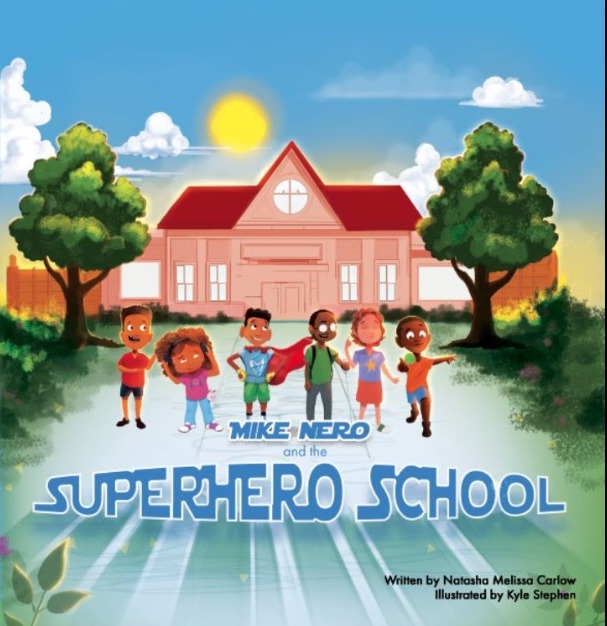8 Ways Teachers Can Embrace Social Emotional Learning in the Classroom
.png) In today's dynamic educational landscape, fostering an environment that goes beyond academic achievement is becoming increasingly vital. Social-Emotional Learning (SEL) has emerged as a powerful tool for educators to shape not only the minds but also the hearts of their students. Here are some practical strategies for teachers to embrace and integrate SEL seamlessly into their classrooms, creating an atmosphere that nurtures both academic and emotional growth.
In today's dynamic educational landscape, fostering an environment that goes beyond academic achievement is becoming increasingly vital. Social-Emotional Learning (SEL) has emerged as a powerful tool for educators to shape not only the minds but also the hearts of their students. Here are some practical strategies for teachers to embrace and integrate SEL seamlessly into their classrooms, creating an atmosphere that nurtures both academic and emotional growth.
Understanding Social-Emotional Learning (SEL):
Before delving into strategies, it's crucial to understand what SEL entails. Social-Emotional Learning encompasses the development of skills such as self-awareness, self-management, social awareness, relationship skills, and responsible decision-making. These competencies form the foundation for a well-rounded education that prepares students for success in and beyond the classroom.
1. Start with Self-Awareness:
Begin by fostering self-awareness in students. Encourage reflective practices, such as journaling or class discussions about personal strengths, challenges, and emotions. This sets the stage for understanding one's own emotions—a key aspect of SEL.
2. Incorporate SEL into Lesson Plans:
Integrate SEL seamlessly into your curriculum. For example, during literature discussions or history lessons, explore characters' emotions and motivations. This not only enhances academic engagement but also builds emotional intelligence.
3. Establish Classroom Norms:
Collaboratively establish and display classroom norms that emphasize respect, empathy, and active listening. Engage students in discussions about these norms, emphasizing their role in creating a supportive learning environment.
4. Use Literature and Media:
Select literature and media that address social and emotional themes. Discuss characters' choices, emotions, and consequences, prompting students to relate these narratives to their own lives. Our newest series and release Ralphy’s Rules for Feelings is a great book to add to your school or classroom library.
5. Integrate Mindfulness Practices:
Incorporate mindfulness practices into the daily routine. Short mindfulness exercises, such as deep-breathing or mindful listening, help students manage stress and improve focus.
6. Provide Constructive Feedback:
Offer feedback that goes beyond academic performance. Acknowledge students' effort, perseverance, and positive behavior, reinforcing the importance of personal growth alongside academic achievement.
7. Encourage Emotional Expression:
Create a safe space for students to express their emotions. Encourage open discussions about feelings, and validate the diversity of emotions students may experience.
8. Professional Development for Teachers:
Talk with your school about ongoing professional development opportunities for teachers to enhance their understanding of SEL and its implementation. Workshops, seminars, and collaborative planning sessions can contribute to a supportive school culture.
In embracing Social-Emotional Learning in the classroom, teachers play a pivotal role in shaping not just the academic success but the holistic development of their students. By weaving SEL into daily lessons, fostering self-awareness, and prioritizing emotional intelligence, educators create an environment where students thrive academically and emotionally. As we navigate the complexities of education, let's recognize that building strong foundations through SEL is an investment in the lifelong success and well-being of our students.
Ralphys Rules for Feelings
Order now!
About Ralphy’s Rules for Feelings:
We often experience intense emotions! At times, we find ourselves unsure of how to navigate these feelings or alter the thoughts triggering them. The prospect of the first day of school can be intimidating, but 'Furrapist' Jackson Johnson and the adorable pup Ralphy, from Ralphy's Rules for the Good Life, are dedicated to assisting a group of kids in understanding and managing their significant emotions. During the school bus journey, Furrapist Jackson Johnson imparts valuable lessons, teaching the children that they have the power to choose their emotions and determine how they react to them. Ralphy and Jackson simplify the complex topic of emotional intelligence, making it accessible for kids to comprehend and, more importantly, integrate into their daily lives. Join us on the bus as we explore how taking control of our feelings can positively impact our day!
"All feelings are valid but we can choose our feelings based on our thoughts. Change your thoughts and you can change your feelings. Like with all things, it will take practice but start them young and they will be Jedi masters in no time". ~ Talar Herculian Coursey

.png)

